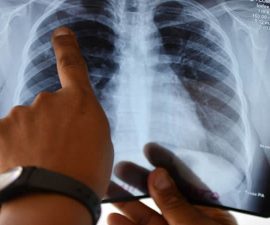… Continued …
- PaO2 (the partial pressure of O2 in arterial blood) is 55 mmHg or lower. Or if SaO2 (the hemoglobin oxygen saturation) is 88 % or lower when breathing at rest.
- If you have specific conditions such as congestive heart failure, oxygenation may be suggested even though if your SaO2 is 89 % or higher or/and PaO2 is between 56 and 59 mmHg.
Oxygenation is usually prescribed to help increase PaO2 to around 60-65 mmHg – or SaO2 about 90-92%.
If you have emphysema, and the disease is very bad with low oxygen levels in the blood, you may need oxygenation at rest. If the disease is mild and more controllable, you may not qualify for this therapy while at rest– but you may need it in particular activities such as before and during exercise. Ask a professional /doctor for more guidance!
What are the risks?
Again the treatment should be used with prescription, as noted earlier. As long as you follow the instructions as well, there should be nothing to worry. Oxygenation can provide a number of benefits for people with COPD.
According to some studies, using oxygen therapy for about 15 hours or more a day may help increase the quality of life and improve life-expectancy for people with severe COPD and hypoxia.
It seems that the therapy may have good long-term and short-term effects in people with severe COPD. Other possible benefits include the improvement of memory problems and impaired kidney function associated with hypoxia.
However it also carries some risks. Remember that in fact oxygen is a fire hazard – therefore you need to follow safety rules! For instance, don’t use it around anything flammable. Higher flow rates of oxygenation can also even be counterproductive or dangerous.
What else? Quitting smoking is the most common advice to cope with emphysema. And this is also important when you take oxygenation. To avoid the risk of fire or explosion, don’t use it around an open flame such as lit cigarettes.
- http://www.nhs.uk/Conditions/home-oxygen/Pages/Introduction.aspx
- http://www.webmd.com/lung/copd/guidelines-for-deciding-when-oxygen-is-needed




